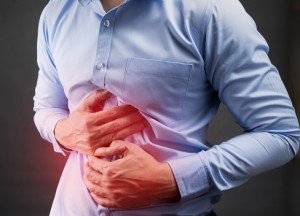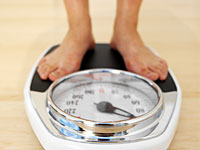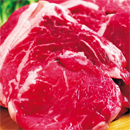Duodenal ulcer, type of peptic ulcer, symptoms, diet, treatment, and home remedies
 Duodenal ulcer is a type of peptic ulcer generally caused by an infection. In rarer cases, duodenal ulcer is caused by the overuse of anti-inflammatory medication.
Duodenal ulcer is a type of peptic ulcer generally caused by an infection. In rarer cases, duodenal ulcer is caused by the overuse of anti-inflammatory medication.
The duodenum is a part of the small intestine where food meets the enzymes for digestion. The digestive enzymes are made from cells lining the small intestine and from the pancreas. Once food is broken down, it can be then properly absorbed.
Quite a common occurrence, duodenal ulcers result from the damage along the lining of the intestines due to stomach acid.
Duodenal ulcer signs and symptoms
Signs and symptoms of a duodenal ulcer include a sensation of gnawing, burning, or hunger in the stomach. Some patients may experience a feeling of fullness. Other symptoms may include nausea, vomiting, bloody or tarry stool, chest pains, and unintentional weight loss.
Duodenal ulcer vs. gastric ulcer: comparing causes and risk factors
Ulcers that occur along the lining of the stomach are gastric ulcers, as opposed to duodenal ulcers which form along the lining of the intestines. Both types of ulcers can be caused by the bacterium H.pylori along with stomach acid and the overuse of anti-inflammatory medications.
Women are more prone than men for both types of ulcer, but younger men are more likely to develop these ulcers than younger women.
Other risk factors include a prolonged use of aspirin, tobacco use, caffeine, alcohol, cancer, and a past history of ulcers.
Diet for duodenal ulcer
 Diet modifications can help you manage your duodenal ulcer and keep symptoms at bay. If you have a duodenal ulcer, you should avoid alcohol, tobacco, and caffeine, as they are irritants. It may also be wise to consume smaller, more frequent meals throughout the day. Keeping a food journal is a smart option, too, as you can keep track of which foods do or do not irritate your condition.
Diet modifications can help you manage your duodenal ulcer and keep symptoms at bay. If you have a duodenal ulcer, you should avoid alcohol, tobacco, and caffeine, as they are irritants. It may also be wise to consume smaller, more frequent meals throughout the day. Keeping a food journal is a smart option, too, as you can keep track of which foods do or do not irritate your condition.
Duodenal ulcer treatment and home remedies
There are many medical interventions your doctor can utilize in order to treat your duodenal ulcer depending on the severity of your condition. Treatment options for a duodenal ulcer include:
- Antibiotics to fight off bacteria like H.pylori
- Proton pump inhibitors, which reduce stomach acid
- Acid blockers
- Antacids
- Cytoprotective agents, which protect the lining of the stomach and intestines
- Surgery, which is mainly only utilized if there is internal bleeding or a perforation
Home remedies for a duodenal ulcer to manage symptoms and promote healing include:
- Do not smoke
- Do not drink alcohol or caffeine
- Avoid foods that promote stomach acid
- Avoid seasonings like garlic, onion, pepper, and other spices
- Avoid high fat foods, spicy foods, foods that contain chocolate, foods made with cream or milk, spice cheeses, seasoned meats or cold cuts, tomatoes and tomato products
- Eat fruits and vegetables, foods containing low-fat or fat-free dairy, whole grains, lean meat
- Don’t eat up to two hours prior to bed
By working with your doctor and making these small diet changes you can help cure your duodenal ulcer.
H. pylori bacteria elimination can help reduce risk of stomach ulcers, gastritis, and gastric cancer
H. pylori bacteria elimination can help reduce risk of stomach ulcers, gastritis, and gastric cancer. Helicobacter pylori (H. pylori) is an infection that promotes ulcers and cancer. There are many factors that can increase stomach ulcers, like smoking, alcohol, excessive salt intake, and nonsteroidal anti-inflammatory drugs. Continue reading…
-
I Threw My Scale In The Trash & Ive Never Felt Better About Myself
-
How Hoodia Spray And Hoodia Help Weight Loss
So many people are talking about hoodia
-
Top 5 Weight Loss Mistakes Boulder Ride Residents Make
Are you unhappy with your current weight loss program? Have you been t
-
How The Right Carbs Can Help You Lose Antidepressant-Related Weight Gain
Audrey, in her 30’s, is typical of people who experience medi
-
Five Weight Loss Solutions To Try
The desire and need to lose weight come in ranges. From the vain to th
-
11 Ways to Stay Slim Through the Holiday Season
V
- DON'T MISS
- Hoodia Food Regimen Pill- Natures Cure for Weight Problems
- Effective Tips To Losing Those Extra Pounds
- Quick Weight Loss Tips - Get A Flat Belly Fast
- Good Fats And Bad Fats - What Is The Difference?
- A Look At Using Phendimetrazine To Fight Obesity
- The 5 Best Strength Moves for Weight Loss
- Jennifer Nicole Lee – Mom Turned Fitness Model
- The Easiest Way To Lose 20 Pounds In 14 Days
- Fat Loss Can Jump Start Your Metabolism Quickly
- Exitor Review - Herbal Weight Loss Supplement




